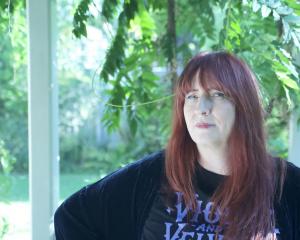Bryan James takes a look the latest batch of literary fiction.

It's a rather conventional narrative of a group of baby-boomers who attend Oxford together, develop lifelong friendships, and spend their middle years wondering where the fun went from their lives.
Some marry, including the two central characters - he is a Rhodes Scholar chemist who is sent down after manufacturing and selling LSD on campus; she is a psychotherapist.
Their marriage is a success, though their two children turn into adults of unanticipated natures, and the story of their lives is largely told by the husband and father, Stephen.
Minor characters intrude here and there with their memories and tragedies.
The novel is written in a rather downbeat style but very skilfully: Grant is able to keep the reader interested even if the lives of her characters are sometimes irritatingly selfish - but then, this is very much a novel of our times.

Sexual love is incidental, though in some of the stories it is the trigger - or the desire for it is - which leads to unforeseen consequences.
Most of the participants are mature adults and most of the incidents will be familiar, indeed all too familiar to readers of mature years.
I suspect most will greatly enjoy these brief encounters, superbly written, with the baffling mysteries of love.
Of the 17 stories in the collection, only two, both of a fantastical nature, are misplaced.
The rest make ideal bed-time reading.
Voltaire's Calligrapher by Pablo de Santis (Harper, $26.99, pbk) was first published, to some acclaim, in Spanish in 2001.
This new translation by Lisa Carter will bring more readers to a simple, three-part novel about Voltaire's battle with the Roman Catholic Church in 18th-century France.
The "calligrapher" of the title is charged with the responsibility of writing down Voltaire's subversive instructions to various plotters in Paris, then with carrying the pages into the city: he is Voltaire's spy, witness to murder and intrigue, and a participant in a mad relationship with an automaton creator.
One of these machines is in the form of a sinister bishop, another a beautiful young woman with whom the calligrapher falls in love: but are they truly wholly mechanical, or are they real, at least in part? A dark tale with the darkest of endings, it will interest readers of elaborate historical whodunits.
More Than You Can Say (Weidenfeld & Nicolson, pbk).
Richard Gaunt is a shell-shocked veteran of the war in Afghanistan and, on a wager, sets out to walk from London to Oxford.
On the way he is kidnapped by people aligned to the Taliban-bin Laden insurgency, and under threat agrees to marry (for monetary reward) an apparently Afghan woman to enable her to remain in Britain.
When the scales finally fall from his eyes he finds himself attracted to the woman but also realising that his bartered bride may be a suicide bomber whose cover as a British housewife he has foolishly provided.
An implausible plot (I won't disclose the unfortunately predictable ending, except to say it is attended by high drama) made just plausible by readers necessarily accepting the stupidity of its hero.
• Bryan James is the Books Editor.













